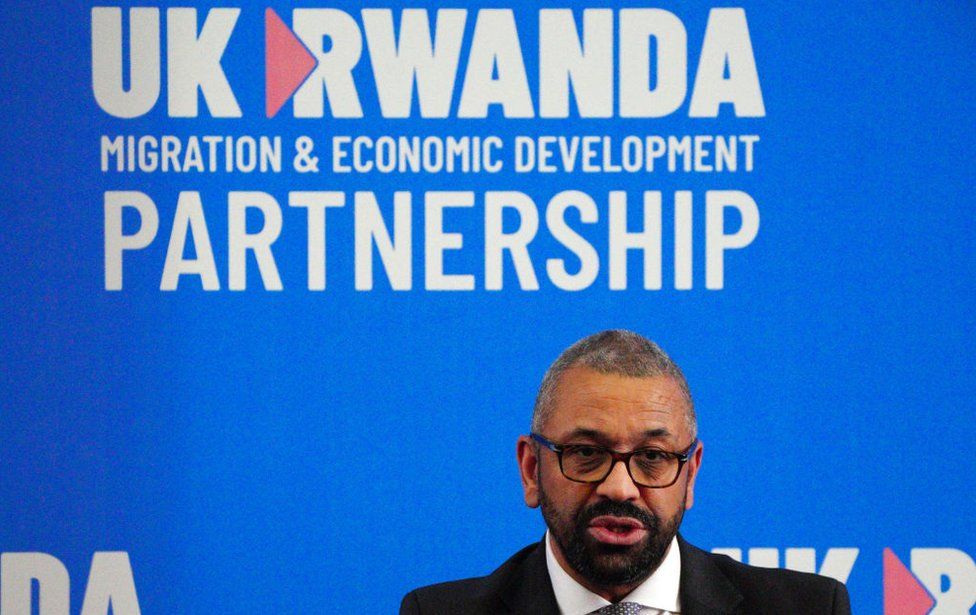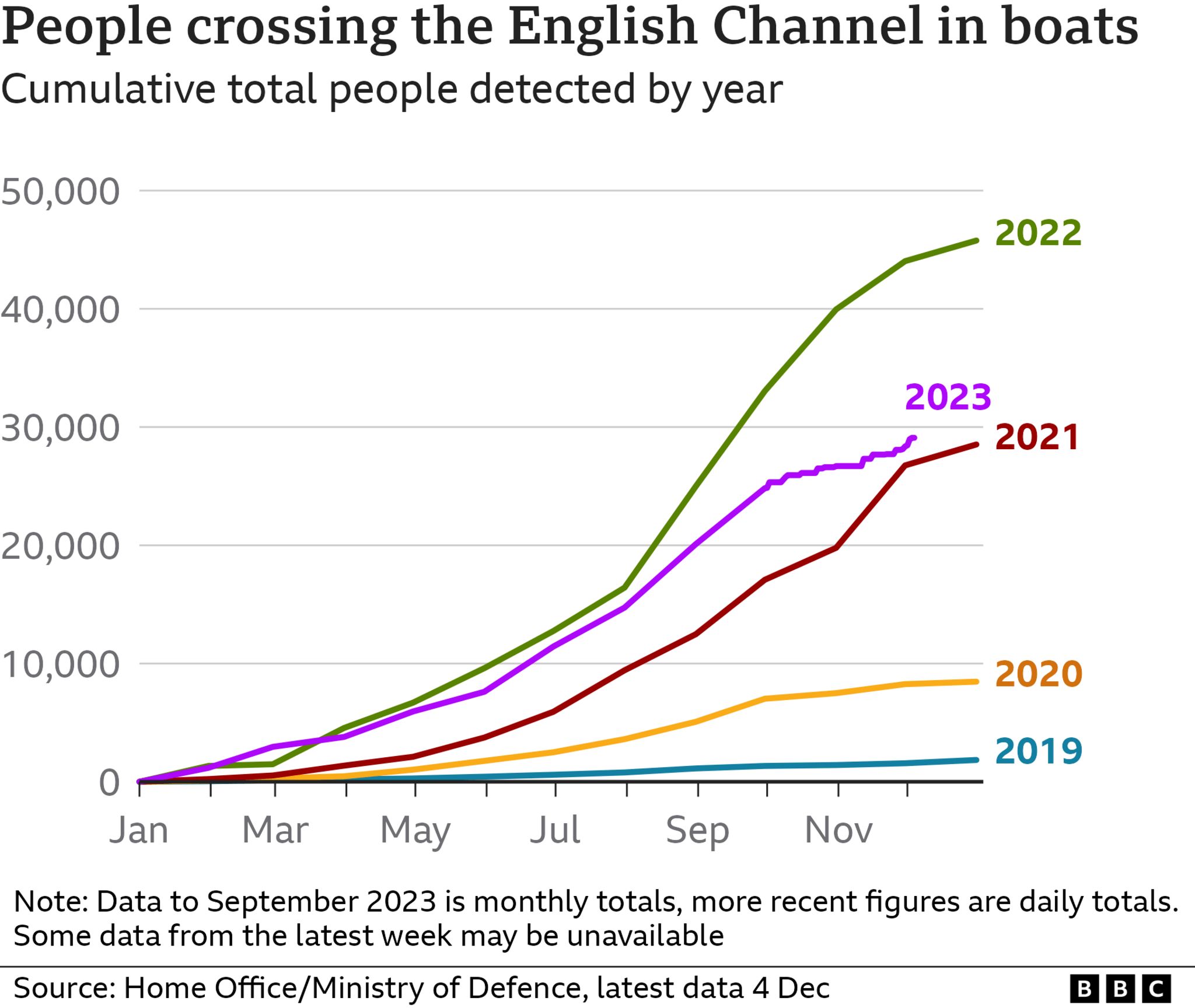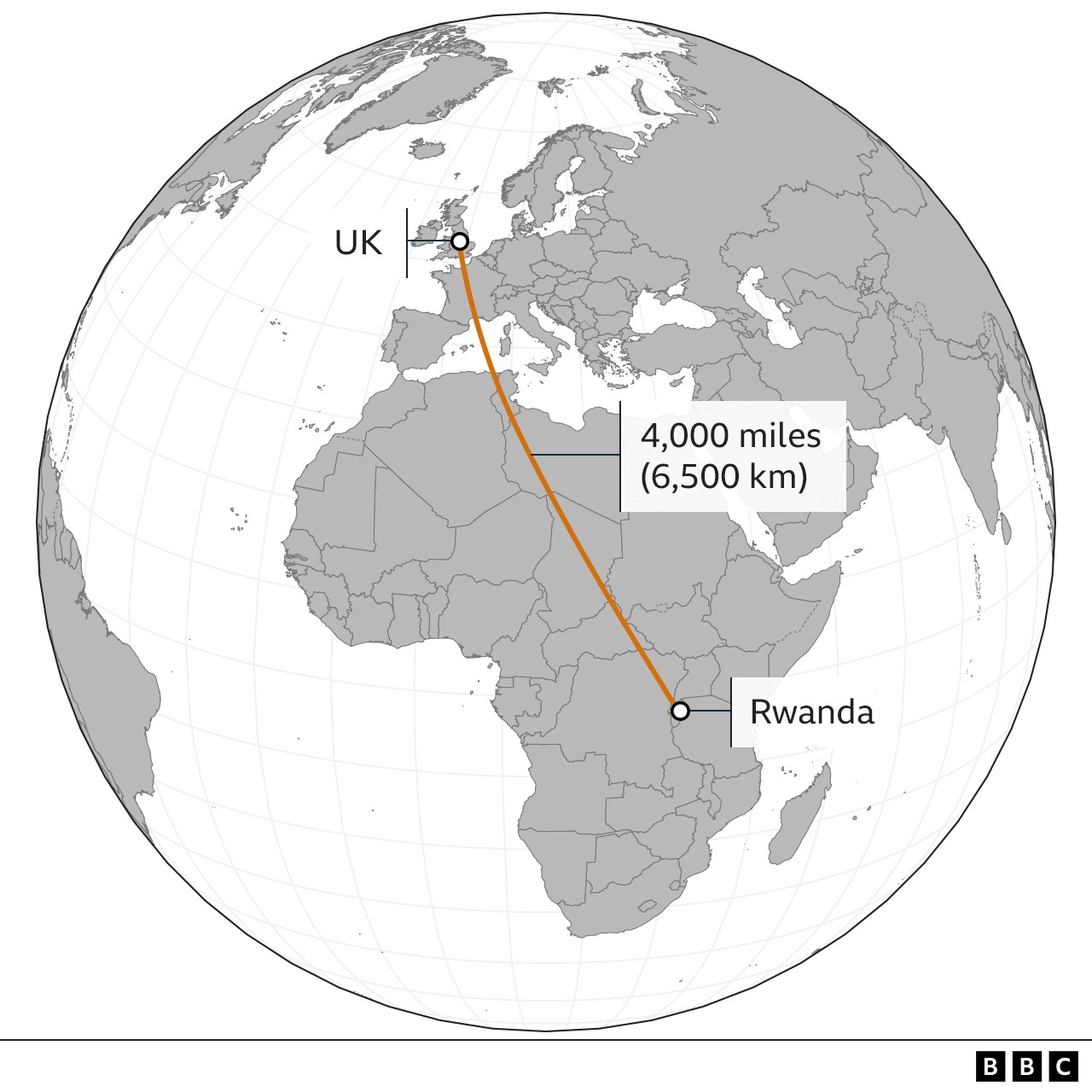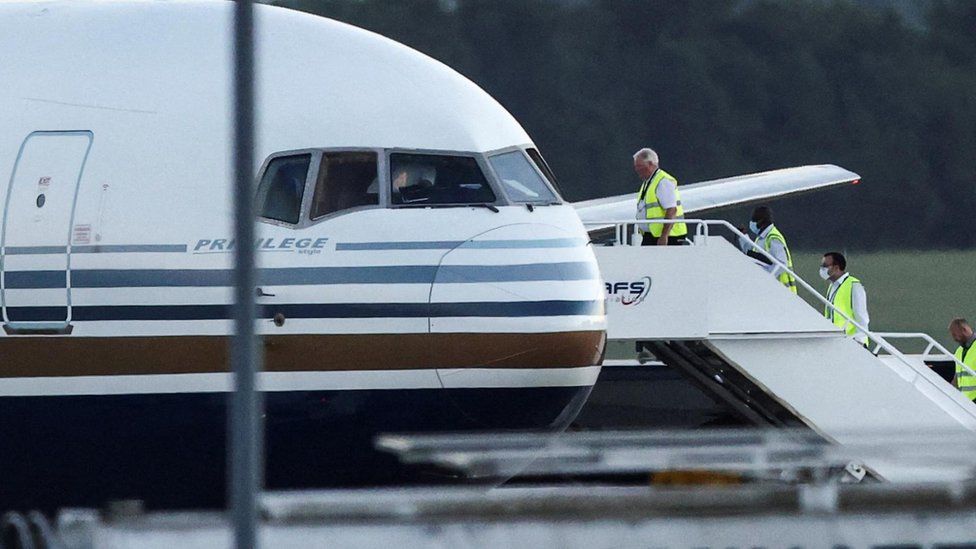
The government has published new legislation which it says addresses the UK Supreme Court’s concerns about the legality of sending asylum seekers to Rwanda.
Home Secretary James Cleverly has also signed a new treaty with the east African country which he says will strengthen its asylum process.
In November, the Court ruled that the Rwanda scheme was unlawful because of the risk that asylum seekers sent there could end up in countries where they could face harm.
What is in the UK’s new bill on the safety of Rwanda?
The government says that the bill – which must be approved by Parliament – makes clear in UK law that Rwanda is a safe country for asylum seekers.
The new legislation would order British judges and courts to ignore some sections of the UK Human Rights Act.
Asylum seekers would still be able challenge their removal to Rwanda based on their personal circumstances.
But the bill would allow ministers to ignore emergency orders from the European Court of Human Rights (ECHR) to suspend a flight to Rwanda while an individual legal case was still being heard.
Former Supreme Court judge Lord Jonathan Sumption previously told the BBC that the government’s attempt to use legislation to get round the Supreme Court ruling was “profoundly discreditable”.
He said that the policy would still be a breach of the government’s international law obligations.
Immigration Minister Robert Jenrick resigned after the bill’s publication, saying it “does not go far enough” to prevent further legal challenge.
Former Home Secretary Suella Braverman told the BBC that the bill “will fail” to stop migration, and that PM Rishi Sunak will lose the next general election.
What does the new migration treaty with Rwanda say?
According to the government, the treaty guarantees that any people sent to Rwanda to claim asylum will not be at risk of “refoulement”, which is the legal term for being sent to a third country where they could be persecuted.
Other provisions include:
- a new independent monitoring committee to ensure Rwanda complies with its obligations
- the UK will pay for British and Commonwealth judges to preside over a new appeals process
- the UK will also pay the accommodation and living expenses of people relocated to Rwanda for up to five years
What did the Supreme Court say about the Rwanda policy?
The UK Supreme Court ruled unanimously that the Rwanda scheme was unlawful.
Five leading judges said the Court of Appeal had been right to conclude in June that there had not been a proper assessment of whether Rwanda was a safe country for asylum seekers.
Court president Lord Reed said there was strong evidence to believe that genuine refugees sent to the country were at risk of refoulement.
This breaches part of the European Convention on Human Rights (ECHR), which prohibits torture and inhuman treatment. The UK is a signatory to the ECHR.
The judges also said the policy breaches safeguards in three British laws passed by Parliament during the last 30 years.
They cited concerns about Rwanda’s poor human rights record, and its past treatment of refugees.
The Rwandan government rejected the judgement, saying: “We take our humanitarian responsibilities seriously, and will continue to live up to them.”
What is the Rwanda asylum plan?
Under the five-year trial – first announced in April 2022 – some asylum seekers arriving in the UK would be sent to Rwanda for processing.
On arrival, they could be granted refugee status and allowed to stay. If not, they could apply to settle there on other grounds, or seek asylum in another “safe third country”.
The government said that “anyone entering the UK illegally” after 1 January 2022 could be sent there, with no limit on numbers.
The UK has already paid the Rwandan government £140m, but no asylum seeker has actually been sent there.
The first flight was scheduled to go in June 2022, but was cancelled after legal challenges.
Why does the government want to send asylum seekers to Rwanda?
The government said the policy would deter people arriving in the UK through “illegal, dangerous or unnecessary methods”, such as on small boats across the English Channel.
More than 45,700 people used this route to come to the UK in 2022, the highest figure since records began.
In January the PM said “stopping the boats” was one of his key priorities.

As of 4 December, the total number of small boat crossings in 2023 was a third lower than at the same point in 2022. But it is not clear which government policies have contributed to that fall.
Where is Rwanda?
Rwanda is a small land-locked country in east-central Africa, 4,000 miles (6,500km) south-east of the UK,
It borders Burundi, the Democratic Republic of the Congo (DRC), Tanzania and Uganda, and has a population of 13.8 million.


President Paul Kagame hopes to win a fourth term in 2024, which would extend his presidency to nearly three decades.
He won the last presidential election in 2017 with nearly 99% of the vote, but critics accuse him of supressing his opponents.
According to Human Rights Watch, “Rwanda is a country where it’s very dangerous to oppose the government”.
Would the plan save the government money?
The government has not provided a total cost for the scheme.
But speaking to journalists on a flight to Dubai for the COP28 climate summit, the prime minister said that the Rwanda plan will “literally save us billions in the long run”.
He did not give details to back up this claim.
An earlier economic-impact assessment prepared for the government’s Illegal Migration Bill estimated that removing each individual to a third country, such as Rwanda, would cost £63,000 more than keeping them in the UK.
That is the difference between the total cost of removing an individual – estimated to be £169,000 – and the £106,000 spent on housing support if they remain in the UK.
The latter figure includes a payment to the third country of around £105,000 per person, as well as £22,000 for flights.

The Home Office said no cost would be incurred if the policy prevented an individual from entering the UK illegally.
But it acknowledged it could not say how many people would be deterred.
The UK’s asylum system costs £3bn a year. About £8m a day is spent on hotel accommodation for refugees and asylum seekers.
Critics say the daily cost is so high because of the time taken to decide on applications, and a ban on asylum seekers working while waiting for confirmation of their status.
Source : https://www.bbc.co.uk/news/explainers-61782866

